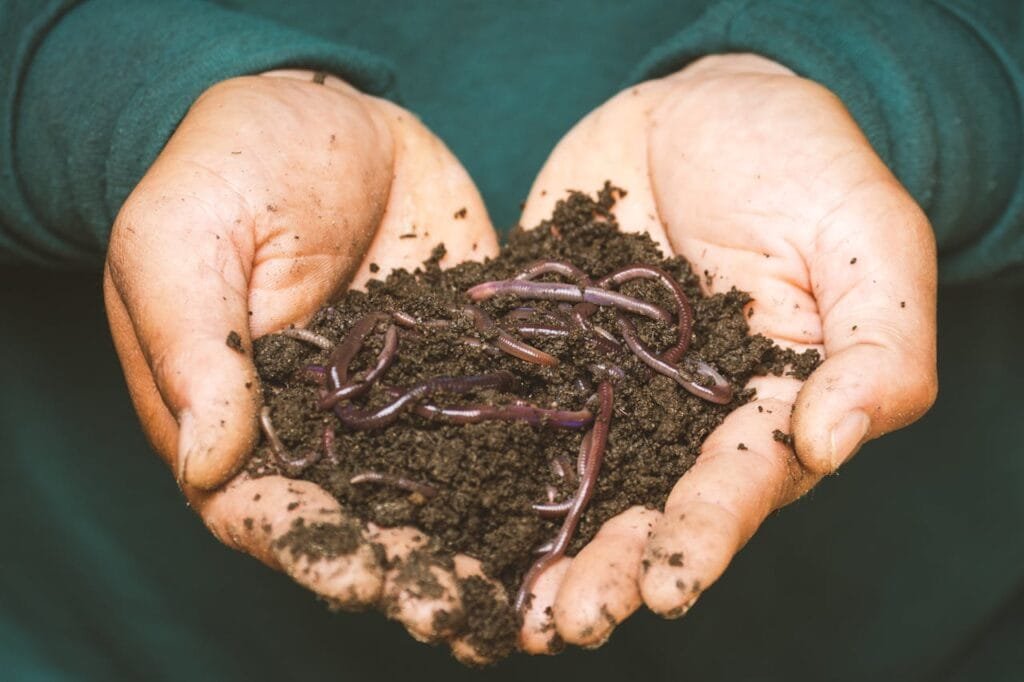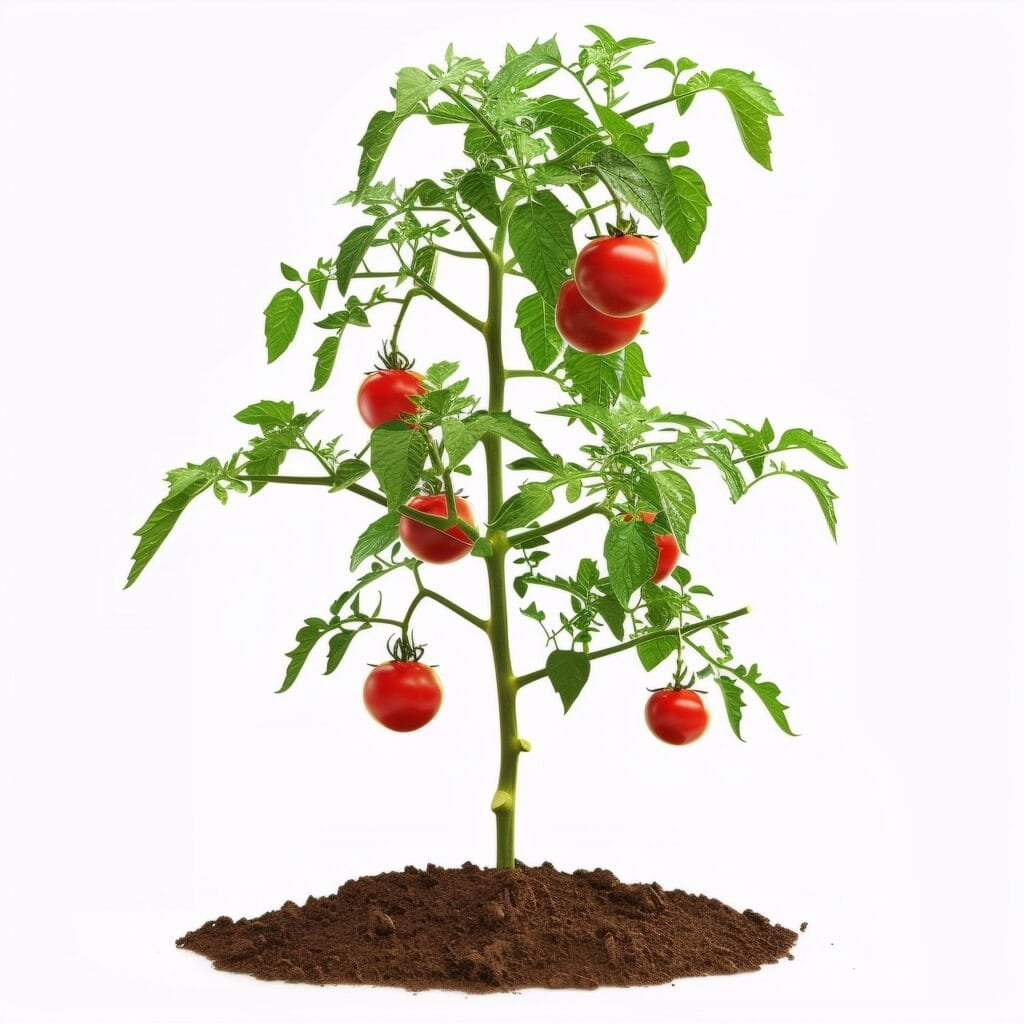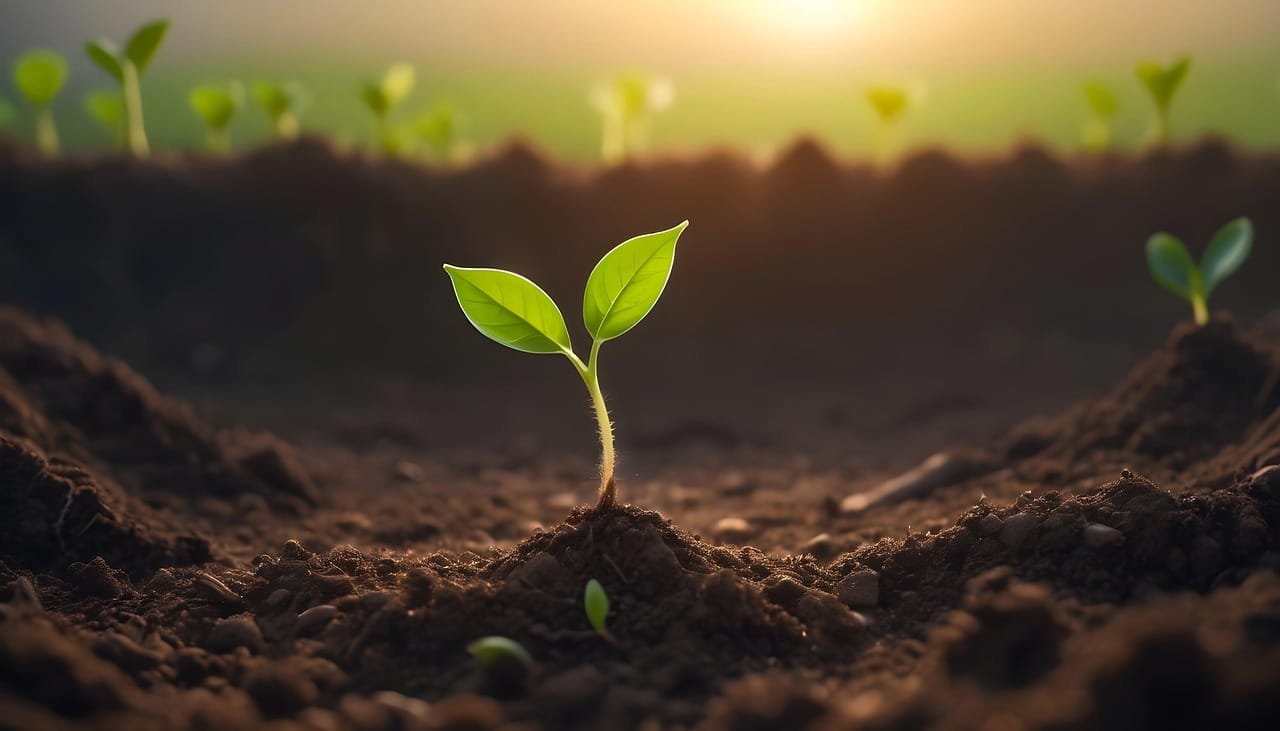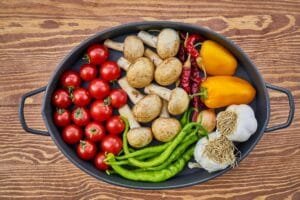Table of Contents
1. What is Organic Gardening? A Beginner’s Guide to Sustainable Gardening.
Organic gardening is more than just a way to grow plants—it’s a commitment to cultivating food in harmony with nature. At its core, organic gardening avoids synthetic pesticides, fertilizers, and genetically modified organisms (GMOs), focusing instead on natural and sustainable methods. By enriching the soil with compost, using companion planting for pest control, and embracing biodiversity, organic gardeners create thriving ecosystems that benefit both plants and the environment.
One of the biggest advantages of organic gardening is the ability to grow fresh, chemical-free produce right at home. This ensures that the organic food and products you consume are free from harmful additives and grown using sustainable practices. Whether you’re planting herbs in small containers or cultivating a full vegetable garden, embracing organic methods not only enhances soil health but also contributes to a cleaner, greener planet.

2. The Foundation of Healthy Plants: Choosing the Right Organic Gardening Soil.
The key to a thriving organic garden starts beneath the surface—with rich, nutrient-dense organic gardening soil. Unlike conventional soil which may be depleted of essential minerals due to chemical treatments, organic soil is alive with beneficial microbes, decomposed plant matter, and natural nutrients that support healthy plant growth. A great way to enhance your soil’s fertility is by incorporating compost, which provides organic matter that improves moisture retention and aeration.
One of the best natural soil enhancers is worm soil, also known as worm castings or vermicompost. This nutrient-packed material, produced by earthworms, enriches organic gardening soil with essential minerals, beneficial bacteria, and enzymes that promote strong root development. Adding worm soil to your garden boosts soil structure, improves water drainage, and helps plants absorb nutrients more efficiently. By investing in high-quality organic soil and natural amendments, gardeners can create the perfect foundation for growing strong, healthy plants without the need for synthetic fertilizers.

3. Essential Organic Gardening Supplies for Sustainable Gardening.
Creating a thriving organic garden requires the right organic gardening supplies to support plant health while maintaining an eco-friendly approach. From nutrient-rich compost and natural fertilizers to biodegradable seed trays and mulching materials, choosing sustainable tools and products helps minimize environmental impact. Organic fertilizers such as compost tea, seaweed extract, and bone meal provide essential nutrients without relying on synthetic chemicals that can harm the soil and surrounding ecosystem.
Practicing sustainable gardening also means selecting tools and materials that reduce waste and promote long-term soil health. Rainwater collection systems, drip irrigation, and natural pest deterrents like neem oil or companion planting are excellent ways to maintain a healthy garden while conserving resources. By investing in high-quality organic gardening supplies and adopting sustainable gardening methods, gardeners can nurture their plants while protecting the environment for future generations.
4. DIY Garden Care: Homemade Plant Fertilizer, Fungicide, and Plant Food.

Keeping your garden healthy doesn’t have to involve store-bought chemicals. With a few simple ingredients, you can create effective homemade plant fertilizer, homemade fungicides for plants, and homemade plant food to nourish your garden naturally.
A great homemade plant fertilizer can be made using compost tea, banana peels, or crushed eggshells to provide essential nutrients like potassium, calcium, and phosphorus. These natural fertilizers enrich the soil and help plants grow stronger without synthetic additives. To protect plants from fungal diseases, a homemade fungicide for plants using baking soda, neem oil, or a garlic spray can work wonders in preventing mold, mildew, and blight.
For an all-purpose homemade plant food, blending fish emulsion, coffee grounds, and molasses can give plants a balanced boost of nitrogen and beneficial microbes. These DIY solutions not only promote healthy plant growth but also align with sustainable gardening practices by reducing chemical use and repurposing household waste into valuable nutrients for your garden.
5. Creating a Sustainable Garden: The Balance Between Gardening and Sustainability.
Embracing sustainable gardening practices is a powerful way to cultivate a thriving outdoor space while protecting the environment. By focusing on gardening and sustainability, you can reduce waste, conserve resources, and support local ecosystems. One key method is using compost and organic mulch to improve soil health, reducing the need for chemical fertilizers. Additionally, planting native species helps maintain biodiversity and requires less water and maintenance.
Another aspect of sustainable gardening is implementing eco-friendly landscaping techniques. This includes designing rain gardens to manage water runoff, using permeable pathways to prevent soil erosion, and incorporating drought-resistant plants to minimize water consumption. Repurposing materials, such as reclaimed wood for garden beds or recycled bricks for pathways, also contributes to a more sustainable outdoor space.
By integrating gardening and sustainability into your gardening routine, you create a healthier, more self-sufficient ecosystem that benefits both your plants and the planet.

6. Managing Common Garden Insects Naturally with Healthy Worm Soil.
One of the biggest challenges in gardening is dealing with common garden insects that can damage plants and hinder growth. While chemical pesticides may seem like a quick fix, they often harm beneficial insects and disrupt the natural balance of your garden. A more sustainable approach is to create a healthy environment using worm soil, which improves plant resilience and attracts helpful predators that keep pests under control.
Common garden insects like aphids, caterpillars, and whiteflies can be managed naturally by encouraging beneficial insects such as ladybugs, lacewings, and praying mantises. These natural predators help keep pest populations in check without the need for harmful chemicals. Another effective method is using worm soil, which is rich in nutrients and beneficial microbes that promote strong, pest-resistant plants. Additionally, companion planting with pest-repelling herbs like basil, marigold, and mint can create a natural barrier against unwanted insects.
By fostering a balanced ecosystem through worm soil and natural pest control strategies, you can maintain a thriving garden while protecting both your plants and the environment.

Conclusion: Sustainable Gardening Methods for a Thriving Organic Garden.
To truly embrace organic gardening, it’s essential to implement sustainable gardening methods that promote long-term soil health and plant vitality. Sustainable gardening is all about working with nature rather than against it, using eco-conscious techniques to reduce waste, improve biodiversity, and create a self-sustaining ecosystem.
A key element of gardening and sustainability is enriching the soil with organic gardening soil and worm soil, both of which are packed with beneficial microbes that support plant growth naturally. Avoiding synthetic fertilizers and opting for homemade plant fertilizer and homemade plant food can further enhance soil quality while keeping your garden free from harmful chemicals.
Another critical aspect of sustainable gardening is natural pest control. Encouraging beneficial insects to manage common garden insects ensures a balanced ecosystem, reducing the need for synthetic pesticides. Additionally, incorporating eco-friendly landscaping practices, such as mulching, composting, and rainwater harvesting, helps conserve resources while maintaining a lush and thriving garden.
By prioritizing organic gardening supplies, natural fertilizers, and soil-enriching techniques, you can cultivate a resilient, environmentally friendly garden that produces healthy organic food and products for years to come.

Visit Gardeners Basics on Amazon (Non-GMO, Heirloom Seeds)
Visit Burpee on Amazon (Organic Gardening Soil)
Affiliate Disclaimer:
Some of the links on this site may be affiliate links, including Amazon links. If you click on a link and make a purchase, I may earn a small commission at no extra cost to you. I only recommend truly green and eco-friendly products. Thanks for supporting Eco-Wise Hub!



Pingback: The Organic Food Revolution - 2025 - Eco-Wise Hub
Pingback: Sustainable Fabrics 101: What Makes Clothing Truly Eco-Friendly? - Eco-Wise Hub